Every Woman Every Child. An unprecedented global effort to save lives.
Every Woman Every Child
Every Woman Every Child is an unprecedented global effort, spearheaded by UN Secretary-General Ban Ki-moon, to mobilize and intensify global action to improve the health of women and children around the world. Working with leaders from governments, multilateral organizations, the private sector and civil society, Every Woman Every Child aims to save the lives of 16 million women and children and improve the lives of millions more.
> About Every Woman Every Child.
An unprecedented global effort to save lives.
“Every Woman, Every Child. This focus is long overdue. With the launch of the Global Strategy for Women’s and Children’s Health, we have an opportunity to improve the health of hundreds of millions of women and children around the world, and in so doing, to improve the lives of all people.”

…
 What is Every Woman Every Child?
What is Every Woman Every Child?
Launched by UN Secretary-General Ban Ki-moon during the United Nations Millennium Development Goals Summit in September 2010, Every Woman Every Child aims to save the lives of 16 million women and children by 2015. It is an unprecedented global effort that mobilizes and intensifies international and national action by governments, multilaterals, the private sector and civil society to address the major health challenges facing women and children around the world. The effort puts into action the Global Strategy for Women’s and Children’s Health, which presents a roadmap on how to enhance financing, strengthen policy and improve service on the ground for the most vulnerable women and children.
Why does this matter?
Every Woman Every Child provides a new opportunity to improve the health of hundreds of millions of women and children around the world, and in so doing, to improve the lives of all people. The health of women and children is critically important to almost every area of human development and progress, and directly impacts our success in achieving all of the Millennium Development Goals (MDGs), adopted by world leaders in 2000.
Research has conclusively demonstrated that the health of women and children is the cornerstone of public health. Healthy women and children create healthy societies. Healthy societies, in turn, are the foundation upon which nations build successful economies and create prosperity for their people. And prosperity, as we know, is essential to political stability and social harmony.
What can be done?
Every Woman Every Child recognizes that all actors have an important role to play in improving women’s and children’s health. More than $40 billion was pledged at the 2010 launch, and numerous partners have made additional, and critical, financial, policy and service delivery commitments, but more help is needed. The Secretary-General is asking the international community for the additional commitments necessary to take Every Woman Every Child past the tipping point. This would mean saving the lives of 16 million women and children, preventing 33 million unwanted pregnancies, ending stunting in 88 million children, and protecting 120 million children from pneumonia by 2015.
This is an enormous and unprecedented undertaking. The stakes are high, and the cost of failure is great. But the rewards of success are greater still. They include a better life for all of us, and a healthy future for women and children everywhere.
Please explore these pages with the desire to ensure that every woman and every child have the same opportunities for health and life and ask yourself what you can do.

> Commitments to Every Woman Every Child
More Money for Health, More Health for the Money
The Global Strategy for Women’s and Children’s Health, developed by a wide range of stakeholders, sets out how we can work together to improve the health of women and children and accelerate progress. It calls for a bold, coordinated effort, building on what has been achieved so far – locally, nationally, regionally and globally. It calls for all partners to unite and take action – through enhanced financing, strengthened policy and improved service delivery.
All partners have an important role to play: governments and policymakers, donor countries and philanthropic institutions, the United Nations and other multilateral organizations, civil society, the business community, health workers and their professional associations, and academic and research institutions.
Since the launch of Every Woman Every Child, many partners have come forward with ambitious pledges to do more for women’s and children’s health. This summary of commitments sets out how partners will contribute to achieving better health for women and children around the world, contributing to some of Every Woman Every Child’s key outcomes. These include saving 16 million lives by 2015, preventing 33 million unwanted pregnancies, protecting 120 millions of children from pneumonia and 88 million children from stunting, advancing the control of deadly diseases such as malaria, HIV/AIDS, and ensuring access for women and children to quality facilities and skilled health workers.
Together, our pledges will ensure more health for the money, through better and more focused use of all available resources. They also represent more money for health. Every Woman Every Child represents a major step towards filling the gap between the investment needed and what is currently provided for women’s and children’s health – with an estimated US$40 billion in funding already committed over the next five years. This funding will be measured and tracked to ensure accountability for commitments, actions and results. That this comes from such a wide range of actors is particularly significant.
On September 20, 2011, over 100 new commitments to Every Woman Every Child were announced. View the list here.

…
> Take Action
Get involved in Every Woman Every Child today
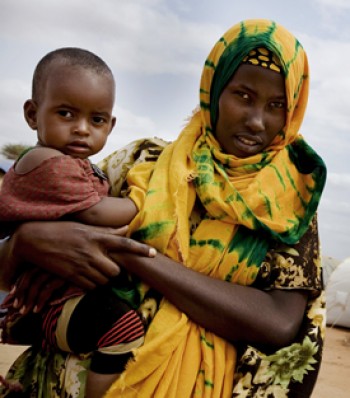 Everyone has a vital role to play in improving women’s and children’s health. National governments can best lead improvements in the lives of women and children, but partners – within and outside of their borders – are needed to support the delivery of country-led health plans and help sustain funding, enable strong policy environments and improve the delivery of critical health services on the ground.
Everyone has a vital role to play in improving women’s and children’s health. National governments can best lead improvements in the lives of women and children, but partners – within and outside of their borders – are needed to support the delivery of country-led health plans and help sustain funding, enable strong policy environments and improve the delivery of critical health services on the ground.
Since its launch in 2010, Every Woman Every Child has already yielded results. New partners have engaged and commitments have been announced. Yet, we know that we must step up and expand our efforts. The more people involved, the greater the impact, and faster the results and more lives saved.
Ways you can take action:
- Make a commitment to Every Woman Every Child
- Support one of our partners in their efforts to improve women’s and children’s health
- Sign up to receive newsletters and stay up-to-date on the latest news
- Take part in the conversation by following us on twitter at @UnfEWEC
- Learn more by reading the Global Strategy for Women’s and Children’s Health
For general inquiries, please contactinformation@everywomaneverychild.orgThis e-mail address is being protected from spambots. You need JavaScript enabled to view it.

…
> A Letter from United Nations Secretary-General Ban Ki-moon
A Global Strategy for Women’s and Children’s Health
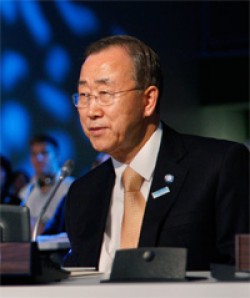 Each year, millions of women and children die from preventable causes. These are not mere statistics. They are people with names and faces. Their suffering is unacceptable in the 21st century. We must, therefore, do more for the newborn who succumbs to infection for want of a simple injection; for the young boy who will never reach his full potential because of malnutrition. We must do more for the teenage girl facing an unwanted pregnancy; for the married woman who has found she is infected with the HIV virus; and for the mother who faces complications in childbirth.
Each year, millions of women and children die from preventable causes. These are not mere statistics. They are people with names and faces. Their suffering is unacceptable in the 21st century. We must, therefore, do more for the newborn who succumbs to infection for want of a simple injection; for the young boy who will never reach his full potential because of malnutrition. We must do more for the teenage girl facing an unwanted pregnancy; for the married woman who has found she is infected with the HIV virus; and for the mother who faces complications in childbirth.
Together we must make a decisive move, now, to improve the health of women and children around world. We know what works. We have achieved excellent progress in a short time in some countries. These range from family planning and making childbirth safe, to increasing access to vaccines or treatment for HIV and AIDS, malaria, tuberculosis, pneumonia and other neglected diseases. The needs of each country vary and depend on existing resources and capacities. Often the solutions are very simple – clean water, exclusive breastfeeding, nutrition, and education on how to prevent poor health are only a few examples.
The Global Strategy for Women’s and Children’s Health meets this challenge head on. It sets out the key areas where action is urgently required to enhance financing, strengthen policy and improve service delivery. These include:
- Support to country-led health plans, supported by increased, predictable and sustainable investment.
- Integrated delivery of health services and life-saving interventions – so women and their children can access prevention, treatment and care when and where they need it.
- Stronger health systems, with sufficient skilled health workers at their core.
- Innovative approaches to financing, product development and the efficient delivery of health services.
- Improved monitoring and evaluation to ensure the accountability of all actors for results.
I thank the many governments, international and non-governmental organisations, companies, foundations, constituency groups and advocates who have contributed to the development of this Global Strategy. This is a first step. It is in all our hands to make a concrete difference as a result of this plan. I call on everyone to play their part. Success will come when we focus our attention and resources on people, not their illnesses; on health, not disease. With the right policies, adequate and fairly distributed funding, and a relentless resolve to deliver to those who need it most – we can and will make a life-changing difference for every woman and every child.
Ban Ki-moon

…
> World Leaders Speak Out
Learn what global leaders are saying
 Ban Ki-moon, Secretary-General of the United Nations
Ban Ki-moon, Secretary-General of the United Nations
History will show that 2010 was a year of new, decisive action – a year when the world decided that no woman should die giving life and no child should die when we know how to save them.
 Melinda Gates, Co-chair of the Bill and Melinda Gates Foundation
Melinda Gates, Co-chair of the Bill and Melinda Gates Foundation
We know that targeting women and children is one of the smartest strategies we can employ to achieve all of the Millennium Development Goals.
 Meles Zenawi, Prime Minister, Ethiopia
Meles Zenawi, Prime Minister, Ethiopia
We remain committed to getting the most out of every dollar invested to improve the health of Ethiopian women and children, and ensure the future development of our country.
 David Cameron, Prime Minister, UK
David Cameron, Prime Minister, UK
We are re-orienting our aid programme to put women at the heart of UK development efforts. Our commitment is to save the lives of at least 50,000 women in pregnancy and childbirth, a quarter of a million newborn babies and enable 10 million couples to access modern methods of family planning over the next five years.
 Hillary Rodham Clinton, US Secretary of State
Hillary Rodham Clinton, US Secretary of State
The Obama Administration has put women and children at the heart of our development efforts, including our Global Health Initiative. This is a day that we have long waited for. I thank the Secretary-General for his leadership and congratulations on this remarkable effort.
 Kevin Jenkins, CEO, World Vision
Kevin Jenkins, CEO, World Vision
This strategy is important and timely. It seeks to correct one of the greatest inequalities of our age, putting right the tragic injustice of eight million children and more than three hundred thousand women who die every year from preventable causes.
 Graça Machel, Advocate for Women and Children
Graça Machel, Advocate for Women and Children
It is time we make the world a fairer place, and it is time we give all women and children the chance to have a healthy life so they can contribute to the development and prosperity of their communities and their countries.
 Bill Weldon, Johnson & Johnson CEO
Bill Weldon, Johnson & Johnson CEO
We have a responsibility to contribute to a future in which women and children have the latest knowledge, technology and medicines to support good health. These are areas where we see the greatest chance to make a difference in saving lives.
 Margaret Chan, WHO Director-General
Margaret Chan, WHO Director-General
The Global Strategy asks us to be smart, strategic and resourceful as never before.
 Shri Ghulam Nabi Azad, Honorable Union Minister for Health and Family Welfare, India
Shri Ghulam Nabi Azad, Honorable Union Minister for Health and Family Welfare, India
India is making all out efforts to address the key maternal and child health related issues, which include strengthening of primary health care system and providing quality care to mothers and children.
 Asha-Rose Migiro, Deputy Secretary General of the United Nations
Asha-Rose Migiro, Deputy Secretary General of the United Nations
Today marks a crucial first step… but it is exactly that – a big first step on a long road to stop maternal deaths, prevent childhood diseases and save lives.
 Fazle Hasan Abed, Founder and Chairperson, BRAC
Fazle Hasan Abed, Founder and Chairperson, BRAC
Guided by the conviction that all lives have equal value, we must do all we can to stop the unnecessary deaths of mothers and babies.
 Dr. Helene Gayle, CARE President and CEO
Dr. Helene Gayle, CARE President and CEO
Coming together across sectors to empower millions of women and children around the world is partnership at its greatest. Now, we must all turn this roadmap into immediate action.
 Jens Stoltenberg, Prime Minister of Norway
Jens Stoltenberg, Prime Minister of Norway
Never have so many come together to save the lives of women and children.
 Jonathan D. Quick, MD, MPH, President and Chief Executive Officer of MSH
Jonathan D. Quick, MD, MPH, President and Chief Executive Officer of MSH
A holistic approach to health care for women and children will maximize the impact of health investments – it will allow people, information and funding to flow more easily among collaborating groups and enable providers to treat the health needs of women and their families more efficiently – regardless of the initial reason a person seeks care.
 Thoraya Obaid, UNFPA Executive Director
Thoraya Obaid, UNFPA Executive Director
Women deliver for their families, communities and nations, and now it is time to deliver for women.
 Joseph Deiss, President of the UN 65th General Assembly
Joseph Deiss, President of the UN 65th General Assembly
We now have momentum. We now have political attention. We now have leadership. We finally have a common strategy. We have the tool to deliver on women’s and children’s health – so central to meet all the MDGs.

…
> Partners
We all have a role to play
At the September 2010 launch of Every Woman Every Child, more than $40 billion in resources for women’s and children’s health was pledged by governments, philanthropic institutions, the United Nations and multilateral organizations, civil society, the business community, health-care workers and professionals, and academic and research institutions, and numerous partners have made additional commitments. To view Every Woman Every Child’s many partners, and to explore their commitments to improving women’s and children’s health, please visit Commitments.
If you are interested in becoming a partner of Every Woman Every Child, please visit Make a Commitment for detailed information.

…
> Resources
Learn More About Every Woman Every Child today
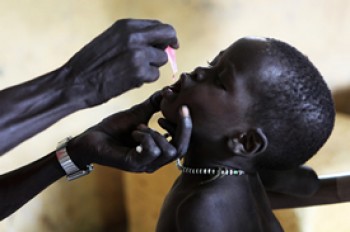 Woman Every Child is based on the Global Strategy for Women’s and Children’s Health, which calls on all partners to unite and take coordinated action. Please explore our resources to learn more about the Global Strategy and how our partners are working together to achieve real progress for every woman and every child.
Woman Every Child is based on the Global Strategy for Women’s and Children’s Health, which calls on all partners to unite and take coordinated action. Please explore our resources to learn more about the Global Strategy and how our partners are working together to achieve real progress for every woman and every child.
September 2011 Update: Saving the lives of 16 million
- Read the full Report
- Addendum of stakeholders that have made commitments in support of Every Woman Every Child since the publication of the September 2011 Update
PMNCH 2011 Report: Analyzing Commitments to Advance the Global Strategy for Women’s and Children’s Health
Global Strategy for Women’s and Children’s Health
- Arabic Global Strategy
- Chinese Global Strategy
- English Global Strategy
- French Global Strategy
- Russian Global Strategy
- Spanish Global Strategy
Global Strategy Executive Summary
- Arabic Executive Summary
- Chinese Executive Summary
- English Executive Summary
- French Executive Summary
- Russian Executive Summary
- Spanish Executive Summary
Download the Annual Global Campaign Reports
- Thematic Report of the Global Campaign for the Health Millennium Development Goals 2011: Innovating for Every Woman, Every Child
- The Global Campaign for the Health Millennium Development Goals 2010: Putting the Global Strategy for Women’s and Children’s Health into action

…
> Commission on Information and Accountability
for Women’s and Children’s Health
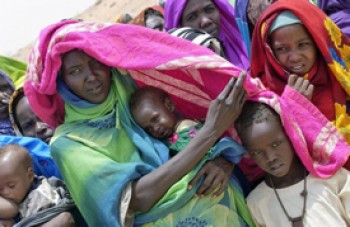 Every Woman Every Child, the effort in support of the Global Strategy for Women’s and Children’s Health, has generated unprecedented commitments from governments, philanthropic institutions and other funders, the United Nations and multilateral organizations, civil society and non-governmental organizations, the business community, health-care workers and professionals, and academic and research institutions around the world to reverse and end the unjust deaths and ill health women and children face. These commitments demonstrate that women’s and children’s health is now a priority on both national and international agendas.
Every Woman Every Child, the effort in support of the Global Strategy for Women’s and Children’s Health, has generated unprecedented commitments from governments, philanthropic institutions and other funders, the United Nations and multilateral organizations, civil society and non-governmental organizations, the business community, health-care workers and professionals, and academic and research institutions around the world to reverse and end the unjust deaths and ill health women and children face. These commitments demonstrate that women’s and children’s health is now a priority on both national and international agendas.
Ambitious commitments made by a range of actors focus on three strategic areas:
- Reducing financial barriers,
- Creating a stronger policy environment towards women’s and children’s health, and
- Strengthening and improving the delivery of health services.
New commitments in support of Every Woman Every Child represent a major step towards filling the gap between the investment needed and what is currently provided for women’s and children’s health. These investments will be measured and tracked to ensure accountability for commitments, actions and results.
Going forward – all partners are challenged to build on this initial set of commitments – and to translate them into concrete action and measurable results for women and children.
The Global Strategy for Women’s and Children’s Health Report called for the World Health Organization (WHO) to chair a process to determine the most effective international institutional arrangements for ensuring global reporting, oversight and accountability on women’s and children’s health.
In response, a Commission on Information and Accountability for Women’s and Children’s Health was created, which proposed a framework for global reporting, oversight and accountability on women’s and children’s health. Through ten recommendations presented in its report Keeping Promises, Measuring Results, the Commission has created a system to track whether donations for women’s and children’s health are made on time, resources are spent wisely and transparently, and whether the desired results are achieved.
The accountability framework proposed by the Commission will:
- Track results and resource flows at global and country levels;
- Identify a core set of indicators and measurement needs for women’s and children’s health;
- Propose steps to improve health information and registration of vital events – births and deaths – in low-income countries;
- Explore opportunities for innovation in information technology to improve access to reliable information on resources and outcomes.
Report of the Commission: Keeping Promises, Measuring Results.
Also available in French, Spanish, Russian, Chinese and Arabic.

…
> About the Commission
Holding Ourselves Accountable
Accountability is critical to the objectives of the Global Strategy for Women’s and Children’s Health. As called for in the Global Strategy, the Commission on Information and Accountability for Women’s and Children’s Health, established in December 2010, developed a framework to ensure that promises of resources for women’s and children’s health are kept and that results are measured.
The accountability framework identifies a core set of indicators for results and resources, proposes an action plan to improve health information systems, and explores opportunities to improve access to information through information technology.
The Commission was led by two co-chairs, President Kikwete of Tanzania and Prime Minister Harper of Canada, and two vice-chairs Dr Chan, WHO Director-General, and Dr Touré, Secretary-General of ITU. Overall, it included thirty Commissioners. Commissioners were chosen from a wide range of stakeholder groups in high-income and developing countries, including governments, international organizations, civil society, the private sector, foundations and academia.
It held its second, and final, meeting in Dar es Salaam, Tanzania, 1-2 May 2011.
>> Objectives of the Commission
The objectives of the Commission were to:
- Determine international institutional arrangements for global reporting, oversight and accountability on women’s and children’s health. This accountability framework encompasses results and resources, and identify the roles of the different partners involved.
- Identify ways to improve monitoring of progress towards women and children’s health, while minimizing the reporting burden on countries, including a core set of indicators, efficient investment in data generation and better data sharing.
- Propose actions to overcome major challenges to accountability at the country level, including strengthening of country capacity and addressing major data gaps, such as the monitoring of vital events.
- Identify opportunities for innovation provided by information technology that facilitate improved accountability for results and resources, and propose ways of ensuring these opportunities are harnessed to bring maximum benefit to countries
>> Timeline for the Commission
– December 2010 Launch of the Commission on Information and Accountability for Women’s and Children’s Health
– 26 January 2011 First Meeting of the Commission in Geneva, Switzerland
– March 2011 Draft Working Group Final Papers available for public input
– 15 April 2011 Deadline for public input into the Working Group Final Papers
– 1-2 May 2011 Second and Final Commission Meeting in Dar es Salaam, Tanzania
– 19 May 2011 Advance Copy of the Final Report of the Commission presented at a technical briefing during the 64th World Health Assembly
– 20 September 2011 Final Copy of the Commission’s Report Keeping Promises, Measuring Results made available at the United Nations General Assembly

…
> Chairs and Vice-Chairs
Commission LEadership
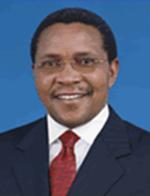 H.E. Mr Jakaya Mrisho Kikwete, President, United Republic of Tanzania
H.E. Mr Jakaya Mrisho Kikwete, President, United Republic of Tanzania
“It is with a deep sense of humility and gratitude that I accept the appointment to serve as co-chair of the Commission on Information and Accountability for Women’s and Children’s Health. Improving the health of women and children is a matter that is very close to my heart. I am very passionate about getting the opportunity to do something to help save the lives and improve the living conditions of many innocent children and mothers. I look forward with great anticipation to working with my co-Chair, the Prime Minister of Canada, Right Honourable Stephen Harper and the other Commissioners to deliver on the Commission’s objectives.”
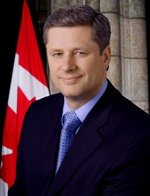 Prime Minister Stephen Harper, Canada
Prime Minister Stephen Harper, Canada
“I welcome the new Commission and I am honoured to have been asked to serve as co-chair along with Tanzanian President Jakaya Kikwete. Canada’s participation in this Commission means that we will continue to play a leadership role in helping the world meet both G-8 and Millennium Development Goal Summit commitments – commitments that will help significantly reduce the appalling mortality rates among women and children in the developing world. I look forward to working with other members to improve the health of women and children in the world, improve how vital health information is registered, collected and shared, and find the best ways of tracking resources and investments at the global and country levels.”
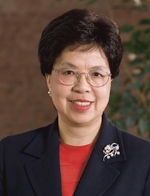 Dr Margaret Chan, Director-General, World Health Organization
Dr Margaret Chan, Director-General, World Health Organization
“As we know from long experience, throwing money at a problem is not the answer. Accountability requires counting: counting the resources actually delivered and measuring the impact on health outcomes, but also counting births, deaths, illnesses, causes, and weaknesses in health systems that contribute to these causes.
Resources come with an expectation of results. I look forward to working with the Commission to propose expedient ways to improve the tracking of financial and other commitments from partners, the measurement of results, and the capacity of developing countries to collect and analyse basic health data.”
 Dr Hamadoun Touré, Secretary-General, International Telecommunication Union
Dr Hamadoun Touré, Secretary-General, International Telecommunication Union
“Information and communication technologies (ICTs) are among the most powerful tools we have at our disposal to dramatically improve health outcomes for infants and their mothers. As co-vice chair of this important Commission, I look forward to sharing our knowledge and actively collaborating with partner agencies and ITU’s unique mix of government and private sector members. Together, we can harness the power of technology to make a real and lasting difference to child and maternal health worldwide.”

…
> Commissioners
Representing All Stakeholders
|

…
> Working Groups
Accountability for Results and Resources
Two Working Groups were established to address accountability for results (the outcomes of programmes) and resources (commitments and disbursements). The Working Group on Results was chaired by Richard Horton, Chair of the Health Metrics Network and Editor-in-Chief of The Lancet. The Working Group on Resources was chaired by Anne Mills, Professor of Health Economics and Policy at the London School of Hygiene and Tropical Medicine.
- Working Group on Results Terms of Reference [French]
- Working Group on Resources Terms of Reference [French]
Final Working Group Papers
The two Working Groups of the Commission submitted their Final Papers. This followed the public consultation period that was open until 15 April 2011 and the Second Meeting of the Commission in Dar es Salaam, Tanzania on 1-2 May 2011.
- Final Paper of the Working Group on Results – May 2011 [French]
- Final Paper of the Working Group on Resources – May 2011 [French]
Please note that these documents reflect the independent views and technical input from the Working Groups of the Commission. Incorporation of any public comments into these documents was at the discretion of the Working Group Chairs.

…
> Documents
Key Resources
Final Report from the Commission:
Final Workplan, “Translating the Recommendations into Action”
Resolution of the WHA on “WHO’s role in the follow-up to the United Nations High-level Plenary Meeting of the General Assembly on the Millennium Development Goals”. Also available in French, Spanish, Russian, Chinese, and Arabic.
Final Paper of the Working Group on Accountability for Results [French]
Final Paper of the Working Group on Accountability for Resources [French]
Opportunities for innovation in information and communication technologies
Accountability for women’s and children’s health in countries: Current practices and challenges in Ghana, Rwanda and Tanzania
Factsheet about the Commission [French]
Commission on Information and Accountability for Women’s and Children’s Health Newsletter

…
> The Commission’s Recommendations
Keeping Promises, Measuring Results
The work of the Commission on Information and Accountability for Women’s and Children’s Health concluded with the report Keeping Promises, Measuring Results. Its work was built on the fundamental human right of every woman and child to the highest attainable standard of health and on the critical importance of achieving equity in health. All accountability mechanisms should be effective, transparent and inclusive of all stakeholders. In addition, the Commission’s work has embraced the Global Strategy’s key accountability principles:
- Focus on national leadership and ownership of results;
- Strengthen countries’ capacity to monitor and evaluate;
- Reduce the reporting burden by aligning efforts with the systems countries use to monitor and evaluate their national health strategies;
- Strengthen and harmonize existing international mechanisms to track progress on all commitments made.
Accountability begins with national sovereignty and the responsibility of a government to its people and to the global community. However, all partners are accountable for the commitments and promises they make and for the health policies and programmes they design and implement.
The accountability framework’s three interconnected processes – monitor, review and act – are aimed at learning and continuous improvement. The framework links accountability for resources to the results, outcomes and impacts they produce. It places accountability soundly where it belongs: at the country level, with the active engagement of governments, communities and civil society; and with strong links between country-level and global mechanisms.
The Commission’s 10 Recommendations
Better information for better results
- Vital events: By 2015, all countries have taken significant steps to establish a system for registration of births, deaths and causes of death, and have well-functioning health information systems that combine data from facilities, administrative sources and surveys.
- Health indicators: By 2012, the same 11 indicators on reproductive, maternal and child health, disaggregated for gender and other equity considerations, are being used for the purpose of monitoring progress towards the goals of the Global Strategy.
- Innovation: By 2015, all countries have integrated the use of Information and Communication Technologies in their national health information systems and health infrastructure.
Better tracking of resources for women’s and children’s health
- Resource tracking: By 2015, all 74 countries where 98% of maternal and child deaths take place are tracking and reporting, at a minimum, two aggregate resource indicators: (i) total health expenditure by financing source, per capita; and (ii) total reproductive, maternal, newborn and child health expenditure by financing source, per capita.
- Country compacts: By 2012, in order to facilitate resource tracking, “compacts” between country governments and all major development partners are in place that require reporting, based on a format to be agreed in each country, on externally funded expenditures and predictable commitments.
- Reaching women and children: By 2015, all governments have the capacity to regularly review health spending (including spending on reproductive, maternal, newborn and child health) and to relate spending to commitments, human rights, gender and other equity goals and results.
Better oversight of results and resources: nationally and globally
- National oversight: By 2012, all countries have established national accountability mechanisms that are transparent, that are inclusive of all stakeholders, and that recommend remedial action, as required.
- Transparency: By 2013, all stakeholders are publicly sharing information on commitments, resources provided and results achieved annually, at both national and international levels.
- Reporting aid for women’s and children’s health: By 2012, development partners request the OECD-DAC to agree on how to improve the Creditor Reporting System so that it can capture, in a timely manner, all reproductive, maternal, newborn and child health spending by development partners. In the interim, development partners and the OECD implement a simple method for reporting such expenditure.
- Global oversight: Starting in 2012 and ending in 2015, an independent ”Expert Review Group” is reporting regularly to the United Nations Secretary-General on the results and resources related to the Global Strategy and on progress in implementing this Commission’s recommendations.

…
> Post-Commission Workplan
Implementing the Recommendations
The Commission on Information and Accountability for Women’s and Children’s Health concluded with 10 recommendations. As a follow up, WHO held a consultation to discuss a draft workplan with partners. This consultation, From recommendations to action: follow up to the recommendations of the Commission on Information and Accountability on Women’s and Children’s Health, took place on 14-15 July 2011 at WHO Headquarters in Geneva.
Objectives of the Consultation
- To discuss and agree upon the draft common workplan “Translating the recommendations of the Commission on Information and Accountability on Women’s and Children Health into Action”.
- To identify the ways in which all stakeholders can contribute and work together towards the implementation of the Commission’s recommendations, as specified in the workplan, at country and global levels.
Objectives of the Workplan
The overall objective is to implement the ten recommendations of the Commission and realize the accountability framework at the country and global levels. The specific objectives are to:
- Strengthen country mechanisms and practices to enhance accountability for women’s and children’s health in the 74 countries, listed in the Commission’s report, during 2011-2015;
- Enhance global accountability mechanisms and practices.
Please see Final Workplan for more information.

…
> Independent Expert Review Group
Delivering on Recommendation 10
On the issue of global reporting, the Commission proposed a time-limited independent Expert Review Group be established and operate until 2015:
Global oversight: Starting in 2012 and ending in 2015, an independent Expert Review Group is reporting regularly to the United Nations Secretary-General on the results and resources related to the Global Strategy and on progress in implementing this Commission’s recommendations.
The Commission requested WHO to lead a transparent process to establish the ERG. A Selection Committee was convened to assess the potential candidates and propose a short list. The independent ERG is comprised of 7 members. Appointed individuals are expected to exercise autonomous, professional judgment and serve in an independent capacity.
Please see the Terms of Reference of the ERG for more information

…
> Nomination & Selection Process
Identifying candidates and appointing members
A call for nominations was open on 8 July 2011. Individuals or organizations wishing to propose candidates were asked to submit nominations via an online form by 14 August 2011, 12:00 midnight Geneva time.
The Selection Committee assessed the nominees using the following criteria:
- Relevance of education, technical background and related knowledge and skills
- Depth and breadth of experience
- Demonstrated leadership in the field of accountability
Members of the Selection Committee where:
Modou Diagne Fada
Minister of Health
Ministry of Health, Senegal
Tore Godal
Special Advisor to the Prime Minister of Norway
Norway
Nyaradzayi Gumbonzvanda
General Secretary
World YWCA
Kevin Jenkins
CEO
World Vision International
Richard Sezibera
Secretary General
East African Community

…
> Expert Review Group Members
Providing Global Oversight
On 2 September 2011, the Selection Committee met in Geneva. Mrs Gumbonzvanda, Mr Jenkins, Dr Sezibera and Dr Godal were joined by the fifth member, Minister Fada of Senegal, by video link. The Committee met to propose the seven members of the independent Expert Review Group (ERG), as well as the two co-chairs.
The list of proposed nominees contained 47 names. The Committee noted that certain regions, namely the Caribbean, Central and West Africa and Asia Pacific were not represented in the pool of nominees.
Taking into account the ERG Terms of Reference and the need to consider a combination of technical, leadership, political, geographical and gender factors, the Selection Committee members unanimously agreed to propose the following membership for the ERG:
- Dr Carmen Barroso of Brazil – Director, International Planned Parenthood Federation (IPPF) Western Hemisphere Region)
- Dr Zulfiqar Bhutta of Pakistan – Professor and Founding Chair of the Division of Women and Child Health, Aga Khan University, Karachi
- Dr Richard Horton of the United Kingdom of Great Britain and Northern Ireland – Editor of the Lancet
- Dr Dean Jamison of the United States of America – Professor, School of Public Health, University of Washington
- Mrs Joy Phumaphi of Botswana – Executive Secretary of the African Leaders Malaria Alliance – ALMA
- Dr Marleen Temmerman of Belgium – Senator and Professor, University of Ghent
- Dr Miriam Were of Kenya – Global Health Workforce Alliance
The Committee proposed Dr Horton and Mrs Phumaphi as co-chairs of the ERG.
Dr Margaret Chan, WHO Director-General, announced this list of names at the UN Secretary-General’s event on the Global Strategy on 20 September 2011.

…
> Innovation Working Group
Increasing Efficiency and Impact
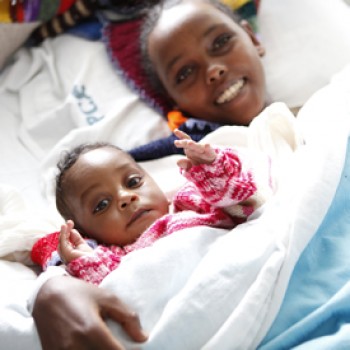 Norway and Johnson & Johnson lead the Every Woman Every Child Innovation Working Group (IWG) that is exploring innovations towards improving mother and child health.
Norway and Johnson & Johnson lead the Every Woman Every Child Innovation Working Group (IWG) that is exploring innovations towards improving mother and child health.
Chairs
Tore Godal , Special Adviser to the Prime Minister of Norway on Global Health
Scott Ratzan, Vice President, Global Health, Government Affairs & Policy, Johnson & Johnson
Project manager
Frederik Kristensen, Consultant, Norwegian Agency for Development Cooperation (NORAD)
>> Tapping the potential of innovation
We know that progress is possible. Some of the poorest countries are now making significant reductions in maternal and neonatal mortality. Country-led innovations can achieve further reductions, enabling health services to produce better outcomes at the same cost. These range from financial incentives to promote performance and results, to innovative use of mobile phones and other communication tools. Mobile phones are an example of how innovation creates unprecedented potential for scale-up. There are more than 5 billion mobile phones in the world. Two out of three mobile users live in the developing world. The UN estimates that half of all residents in remote areas of the world will have mobile phones by 2012. More than 100 countries are now exploring the use of mobile phones for health purposes, such as referring people to their nearest health-care facility, and advancing health literacy by educating families and service providers.
>> Public-private partnerships
Public-private partnerships represent a potential for the private sector to innovate, develop new businesses, risk-sharing, improve the quality of services and accelerate access to advanced technologies. Innovation also applies to leadership. In several places, dynamic national leadership at the cabinet level, exercised through parliament, is holding local governments accountable for providing reliable information and improving the performance of local health systems. This bold leadership has resulted in rapid development of health systems, often through innovative programs to train and retain new health workers.
Because of the vast array of innovations being explored as pilots, there is an urgent need to evaluate different models so that we can learn what works and what has most potential for being integrated into countries’ health systems. To encourage the scale-up of the best models in support of the Global Strategy for Women’s and Children’s Health, all partners must be involved: Governments, policy-makers, civil society, community organizations, global and regional institutions, donors, UN agencies, the private sector and research institutions.
>> Working Group – Updated Charter and 2011 Work plan
The Innovation Working Group developed a report last year, and then received an updated Charter and developed a Work plan for 2011 to deliver on the above challenges.

…
* More about Every Woman Every Child at: >>> everywomaneverychild.org <<<



















